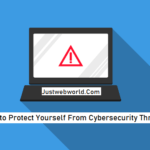Protecting passwords has become a daily struggle for consumers. Every service has its own algorithm, and every expert tells you to use a different password. Instead of fighting the battle, it’s time to think about winning the war.

There Are No Safe Passwords
Before finding out if passwords were compromised, it is important to understand the true meaning of safety. Managed IT services Brisbane uses high-level encryption that goes above and beyond normal consumer usage. That means unless you’re an IT professional, then there is a high chance that your password is not safe.
Being cute and making a random password with symbols is no more complex than typing out 12345pass. Instead of focusing on the content of the password, it is more important to look at how it is managed. Do you use complex passwords and then store them in the web browser?
Do you use mobile banking apps and log in with a password instead of the biometric fingerprint? Or have you ever tried to circumvent an auto password renewal by adding a higher number on the end of the same password?
These are all examples of why the content of a password can quickly become the least important thing for security.
How Do You Know?
If you are a Chrome or Gmail user, then Google will officially warn you of any compromised passwords. All too often users ignore these messages and continue to use compromised passwords. Google makes it easy, but that doesn’t represent the full scope of a password fix.
Apple uses a similar method, and in some ways does a much better job than Google in identifying (and notifying) you of unsafe passwords. The iCloud Keychain uses end-to-end encryption and will notify you in real time if there is a potential data breach. The security recommendations tab on all Apple devices is the best place to keep up to date with this information.
For the majority of users, data breaches emails used to be a solid way to stay on top of compromised passwords. Unfortunately, most users click on these emails without noticing that the sender is fake. These are phishing scams, and will typically lead to compromising a password that was never in danger.
If you don’t use Apple or Google products, then a reliable website for many has been haveibeenpwned.com – don’t let the name fool you! This is a legit source that has helped many to immediately chase down the source of their compromised information.
What Should You Not Do?
Don’t announce that you’ve been comprised on social media! This can have a negative effect on your other accounts that are not compromised. If business partners or friends find out that you’ve been compromised, then they will be less likely to open messages from your account. Announce the possibility of a breach with a service, but don’t admit that you are a victim of it.
Use Common Sense
Technology requires using common sense to prevent it from being compromised. You’ll slip up here and there, but the integrity of your passwords should never be part of the learning experience. To prevent an expensive life lesson, stay on top of password security.
Join 25,000+ smart readers—don’t miss out!






